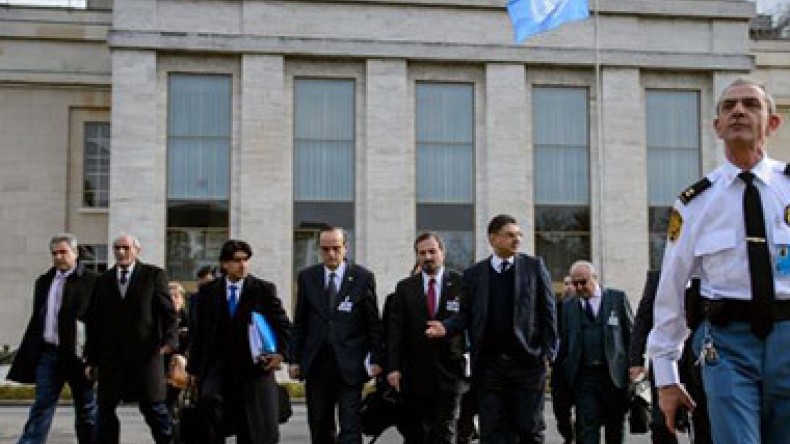
Syrian opposition platform very weak – analyst
Press TV has conducted an interview with political analyst Issa Chaer about the talks between delegations representing the Syrian government and foreign-backed opposition that have stalled over the sensitive issue of the transfer of power.
- Do you think that the Syrian government is actually pursuing a delaying tactic as the opposition was saying there or is it do you think genuinely interested in finding a political solution out of this crisis?
- I think it is both [in] the interest of the Syrian government and [in] the interest of the Syrian people that this peace process materializes on the ground and I think anybody who is claiming that the Syrian government is delaying it or trying to break this negotiation would be mistaken because at the end of the day the stability of Syria is dependent on a peaceful resolve to this conflict and then the government of Syria would then revert back to running or whatever government comes revert that to running the country without the influence of a conflict, an armed conflict on the ground and the infiltration of armed militants from all over the world.
You see, there is an issue here which Syria is dealing with on the ground and it is show up militarization and arms are on the ground and extremists which are penetrating in Syria, coming into Syria from all sides and causing havoc. Instability is dangerous not just for Syria but also for the region. The survival of any government, the survival of any political establishment whether it be Syria or in the region is dependent on a peaceful resolve to this conflict.
So, I would not think that the Syrian government would be or would be [in] the Syrian government interest to delay or to put a block against this peaceful talk.
- Well, what are the prospects do you think for this Geneva conference that is taking place? It looks like an agreement is very far from reach with the opposition agreeing that they do not want Bashar al-Assad in power and the government is saying that he is going to remain as part of the political process. So how can this issue be resolved politically or peacefully?
- Okay. What we need to do is look overall at what has been achieved so far. The two sides coming together is an achievement, we should not knock it down, a discussion about humanitarian aid going to Homs and the discussion about extremism [are] positive outcomes from this conference.
Now with regard to the transitional government, it is an achievement which has happened on the humanitarian, it is positive. With regard to the transitional government we have to look at the perspective what is going to happen. If there is a weak transitional government which could then endanger the whole institutional structure of Syria and we will see the collapse of a whole institution like the way we had in Iraq.
The opposition platform on the ground within the regions where there is no armed militants, within the regions that are run by the government it is very, very weak. They do not have any platform there. So if they come over to the country where they have weak platform, they will end up creating conflict and there will be frightful power again and the infrastructure will collapse.
We have to remember that the civil service structure is the majority of the people and the people are the [ones] who will decide which government will run the country. It is not [that] foreign-backed oppositions or foreign governments impose who is going to run the country.
Newsfeed
Videos






























